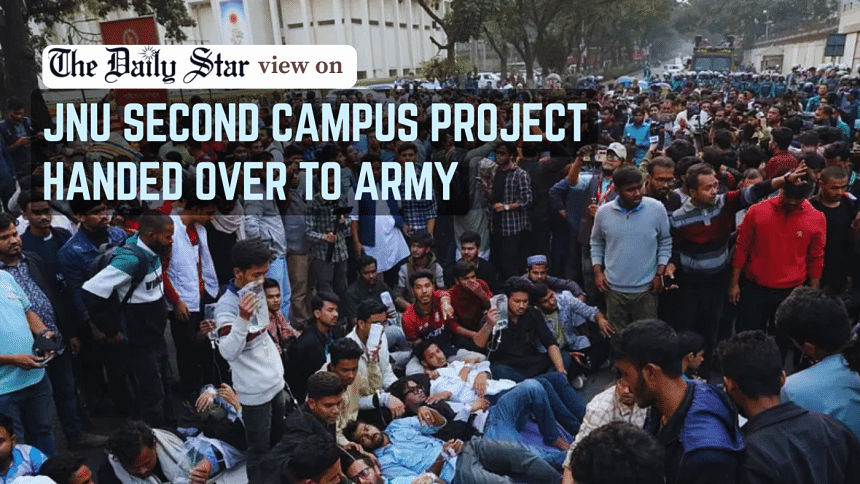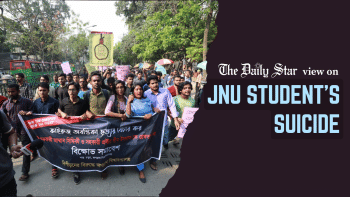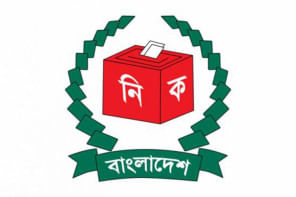Time to fix Jagannath University’s infrastructure shortcomings

It is heartening to see the authorities respond positively to the demands of the protesting Jagannath University (JnU) students. The decision to involve Bangladesh Army in constructing the university's second campus in Keraniganj, while not an ideal one, meets a key demand of the students who, since Sunday, have staged a hunger strike, held sit-ins in front of the Secretariat Building, and enforced a campus shutdown. The army's expected involvement in constructing steel-based buildings at Bani Bhaban and Habibur Rahman Hall for temporary accommodation also meets another demand. While these steps only partially address JnU's long-standing infrastructural challenges, they should provide sufficient incentive for the students to lift their shutdown for now and return to class.
However, the students' call for written assurances is also reasonable, given the chronic nature of these issues as well as instances of unfulfilled promises not long ago. For many years, JnU—now in its 20th year, having been upgraded from college status in 2005—has had to cope with inadequate facilities and spaces that are, frankly, unbecoming of a public university. Over 17,000 students are currently enrolled across 38 departments and two institutions. Despite this, there is only one residential hall for female students and none for male students. Eleven halls of the erstwhile Jagannath College in Old Dhaka remain occupied to this day, despite years of protests and legal efforts. The university also has no playground, and no common room for male students. The absence of adequate residential facilities means that many students must undertake gruelling commutes daily, leaving them physically and mentally exhausted.
These are just some of the problems plaguing JnU and its students. It is unfortunate that the decision to set up a second, more spacious campus in 2016 has taken so long to gain traction, which only shows how badly the ousted Awami League government handled the infrastructural and accommodation challenges of this institution, with corruption, mismanagement, and inefficiency all playing a role in this crisis. The lack of sound academic planning, necessary for the transformation of a college-turned-university, also contributed to this. Going forward, it is imperative that the authorities proactively address all these issues—not just the ones raised by students—so that this institution can fulfil its potential.
We, therefore, urge the authorities to undertake a comprehensive review of the present state of JnU and formulate an action plan prioritising the establishment of necessary facilities and amenities as well as the reclamation of old, occupied halls. For now, they must properly engage with the protesting students to ensure that academic activities are resumed without delay.


 For all latest news, follow The Daily Star's Google News channel.
For all latest news, follow The Daily Star's Google News channel. 










Comments